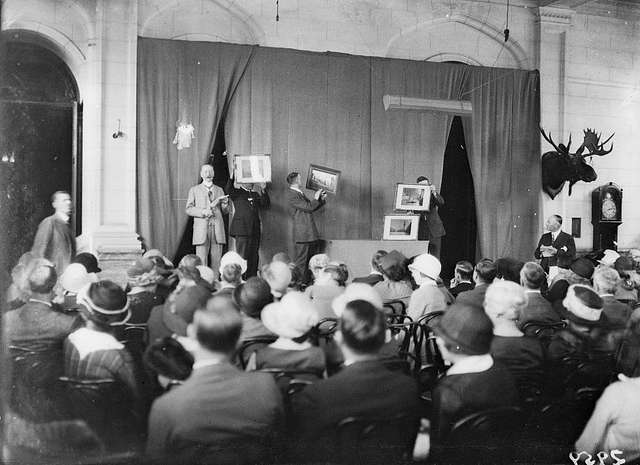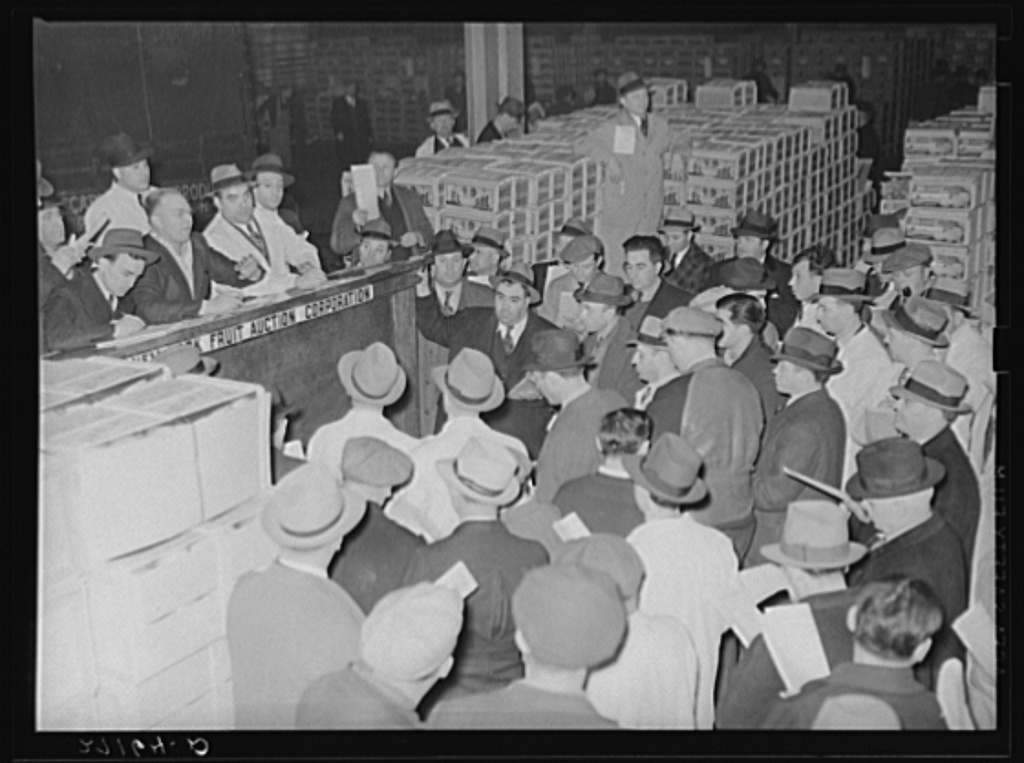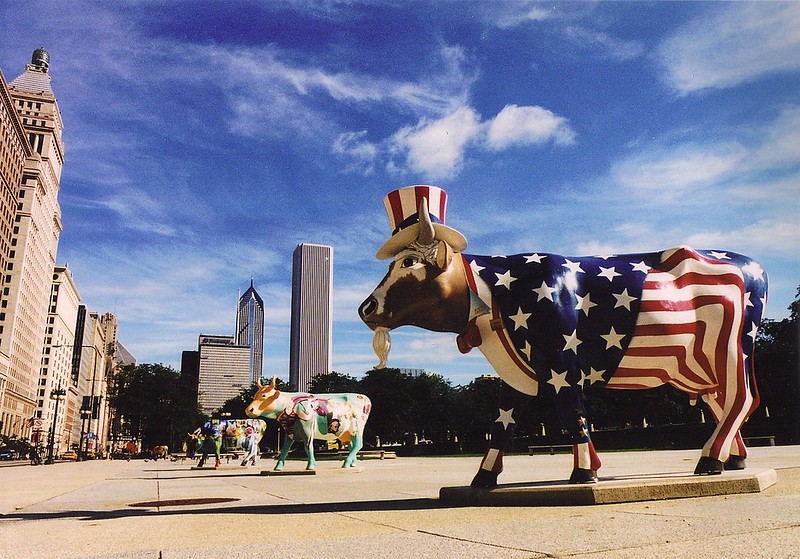Nearly 80% of private equity companies prefer to use auctions when acting as sellers. When acting as buyers, however, nearly 90% of the same companies said they preferred not to participate in auctions.
Warren Buffet famously stated in Berkshire Hathaway’s Annual Report, “We prefer to acquire for cash, we don’t engage in auctions”. Warren Buffet, on the other hand, auctions off a lunch with him every year.
In 2019, the winning bidder for the annual lunch with Warren Buffett paid a record $4.5 million.
According to Bruce Wasserstein, one of the well-known auctioneers, an auction maximises value… smart buyers will want to avoid it.

What is an auction?
An auction is a process of buying and selling products and services that involves putting them up for bid and selling to the highest bidder. Bidders compete against one another, with each successive bid outbidding the one before it. The auction is considered complete when the vendor accepts the highest bid and the buyer pays for the products or services and gets possession of them.
The nature of auctions, whether it’s an eBay auction, a traditional auction, or an eAuction, puts participants in strange psychological situations. It’s certainly possible that bidders will spend more than they expected.

History of Auction
The word auction, like many other European languages, is derived from Latin. It comes from the Latin word augeo, which means ‘to expand’ or ‘to increase.’
Auctions have a long history, with some dating back to 500 B.C. in Babylon, when women were auctioned off for marriage on an annual basis as a ceremonial event. During this time, it was illegal for women to marry without first going through the auction process. The auctioneer started the auction with the woman who was thought to be the most attractive of all the women up for auction that day.
The auction was conducted in descending pricing approach. Starting with the highest bid and lowering until the lowest bid was reached, as long as the bid price was greater than or equal to the seller’s reserve price. If the buyers didn’t get along with their new wife, they could get their money back.
Auctions were first employed in the United States to sell farm goods, estates, and slaves. When troops returned from combat, they frequently sold their military treasures at auction. The auctioneering business grew significantly during the Great Depression, when several families went bankrupt and had to sell their assets. Due to auctions, individuals and businesses devastated by the recession were able to rapidly sell their assets.
With the help of the internet, the auction gained popularity in the twentieth century.

Why do we pay more at auctions?
Do we pay more at the websites that utilizes auction to sell the products? Are those websites manipulating us to pay more for the items being sold? Lets find out.
On-line auction sites like eBay cater for auction, allowing us to purchase the products easily without visiting the store. Yet somehow, despite our better judgement, we end up paying more than the actual price or the price our subconscious mind believes for that particular products.

So, Ebay is manipulating us to pay more?
A product can usually be purchased in two ways. The first is by clicking the “Buy Now” option, and the second is by bidding in the auction. We will be able to obtain the merchandise after winning the bid.
According to the BBC, about half of eBay auctions result in sale prices greater than the “Buy now” price. Nobody likes to pay more for a thing than its value. However, we end up paying more in the auction. What causes this to happen? Why don’t we just buy by clicking the “Buy Now” button?
If you believe that eBay is doing something wrong, you are completely incorrect. Ebay’s auctioning procedure is completely transparent. You are entirely mistaken if you believe eBay is doing something wrong. The auction process on Ebay is totally transparent. Sellers set a starting price and you bid against other buyers. On the Ebay website, you can also keep track of your bids. The highest bidder wins the auction and pays for the item after the listing expires.
Ebay also follows a proper approach to prevent fake bidding from family members or friends. A member who knows the seller, such as a family member or relative, may occasionally bid on an item to inflate the price. As a result, they are not permitted to participate in the auction. So, in a nutshell, Ebay auctioning is dependable and transparent.
It is not the case that bidders pay more for online auctions. The same can be said for offline auctioning as well. The issue isn’t with the auction itself, but with the bidders.

Why is the bidder to blame for the auction’s poor outcome?
“Cows on Parade,” a highly popular and, in many ways, trend-setting exhibition, was held in Chicago in 1999. It consisted of around 300 life-size fiber-glass cows that were hand-painted by local artisans and displayed in public areas throughout Chicago. Later, the “Cow Parade” cows are auctioned off.The animals were sold for nearly seven times their initial predictions.
With the non-emotional but rational intellect, i.e. robots, the chances of paying more for a product are slim.However, the human mind may feel the auction’s pressure, and emotions can influence the outcome of the bidding.Some of the psychological effects are as follows:
Auction fever is defined as a bidder’s decision to depart from his initial bidding plan. As an example, let’s say you’re bidding on an art piece and your budget is $10,000. However, if the bidding exceeds $10,000, you still continue to participate in the auction process.
Social facilitation is a social phenomenon in which being in the company of others affects one’s ability to complete a task. It will happen while you are completing a task in the presence of other persons who are undertaking an identical task. When competing against other cyclists, riders were found to ride at a faster speed as compared to when cycling alone.
The endowment effect shows how people appreciate things they own more than things they don’t own. Marketers and salespeople may easily take advantage of this strategy. Any technique that makes us feel a feeling of psychological ownership over a thing might urge us to spend more money on it. A story or the inspiration for making the art is frequently told to the bidders when an art is auctioned.

Importance of Persuation
In auctions, persuasion plays an important role. In his book, Robert Cialdini examines the psychology of customers in detail. He identifies six major strategies for persuasion.: Reciprocity, Scarcity, Authority, Consistency, Liking and Consensus
Auctions mostly deal with Scarcity and Social Verification.
To begin, auctions are based on the principle of scarcity, in which we overvalue items that we believe will run out. People are more likely to want something if there is less of it. Auction objects are rare in that they are one-of-a-kind and limited in availability. Here are a few examples: Some online products on sale feature a ticking timer that counts down the seconds till the order is completed. This is a “once-in-a-lifetime” event. This is a “limited-edition” timepiece.
Robert B. Cialdini in his textbook, Influence: The Psychology of Persuasion, defines it this way: “Opportunities seem more valuable to us when their availability is limited.”
The theory of “social proof” is sometimes applied in auctions. Humans are social creatures that believe it is important to follow the rules of a social circle. This means that while making decisions, we frequently look around to check what other people are doing. “Eight out of ten hotel customers who stay in this room chose to reuse their towels,” for example. Auctions bring you into close quarters with other individuals, all of whom are offering social proof that the thing for sale is essential and valuable.





